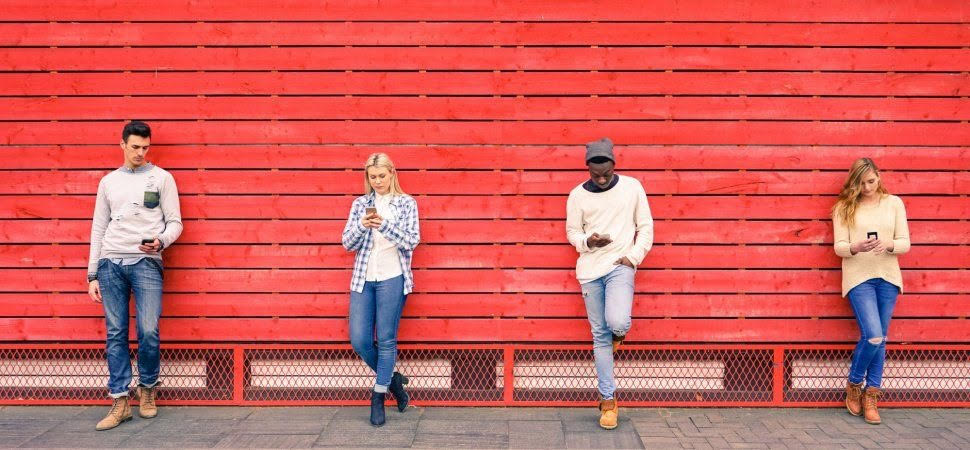
08 May The Social Media Paradox: It Sells us Connection but Sucks Our Attention
Social media networks say they are all about connecting people. But they have warped into distraction engines which suck our attention – taking us away from those we could be connecting with – and spawning the logging-off, or digital detox, movement.
Why did we join Facebook in the first place? It almost certainly wasn’t to watch, like and share streams of viral videos, which the newsfeed has overwhelmingly evolved into. Why did we join Twitter? It wasn’t to have circular arguments, in a medium stripped of nuance of expression. We didn’t join Instagram to get more anxious about our body image either.
These are the downsides of social media that were unexpected. Yet these downsides have clearly existed for some time, and only until very recently have they been in any way acknowledged by the infant, but giant, companies.
The social media message sold is connectivity but, rather than meaningfully enhancing this, platforms absorb our attention while pursuing an approach of growth at any cost. It’s claimed that users will benefit because they will be able to become closer to those that matter in their lives. But that connectivity is of little commercial value to platforms who rely on advertising revenue. User data is what is essentially sold to advertisers, who in turn want consumers to look at their products – ultimately this data and the subsequent consumption of our attention is the real value.

“The ugly truth is that we believe in connecting people so deeply that anything that allows us to connect more people more often is *de facto* good. It is perhaps the only area where the metrics do tell the true story as far as we are concerned.”
Facebook VP Andrew Bosworth in memo to Facebook staff
Likes don’t equal connection
This inconvenient truth has run rampant in recent years. The first major departure from enhanced connectivity was Facebook’s introduction of the Like button in 2009. This opened the door for viral publishers to enter that platform, and subsequently grow incredible amounts of traffic quickly – even at the expense of truth and credibility.
A market of hyperbole and fake news became inflated, but Facebook offered little meaningful resistance. Rather than making meaningful connections and having conversations, users were now increasingly distracted by publishers that were focused on attention absorption, often with a single-minded focus on stirring prospective audience’s emotions. Since its inception until only January this year, the cluttering of the newsfeed with everything but updates from close friends has generally increased.
Second social media revolution
Meanwhile, around 2012, there was a second social media revolution – a proliferation in usage of social apps specifically designed for mobile devices with no desktop version. Instagram, which had existed since 2010, released its Android version in 2012 and rapidly grew its user base. Snapchat and Tinder were also released around this time. It’s no coincidence that the stirrings of the first digital detox movement began around this time too.

The paradox of connectivity vs. attention is perhaps best illustrated by Tinder. This is an application that is supposed to enhance people’s likelihood of getting into a relationship. While there are many interpretations of what it can deliver, Tinder runs on a ‘freemium’ model of people either paying for a subscription or being served advertising as they swipe through potential matches.
But given Tinder will make more money via showing users more advertising, it means holding user attention on the platform for longer on the platform is the best option. Therefore, though connecting to a potential soulmate is what’s offered, it’s actually our attention that’s being sold.
We must think to ourselves – is social media really helping us make deeper and more meaningful connections in contrast to our time and attention spent on the platform? If it isn’t, then perhaps it really is time to quit social media and take a digital detox.




Sorry, the comment form is closed at this time.